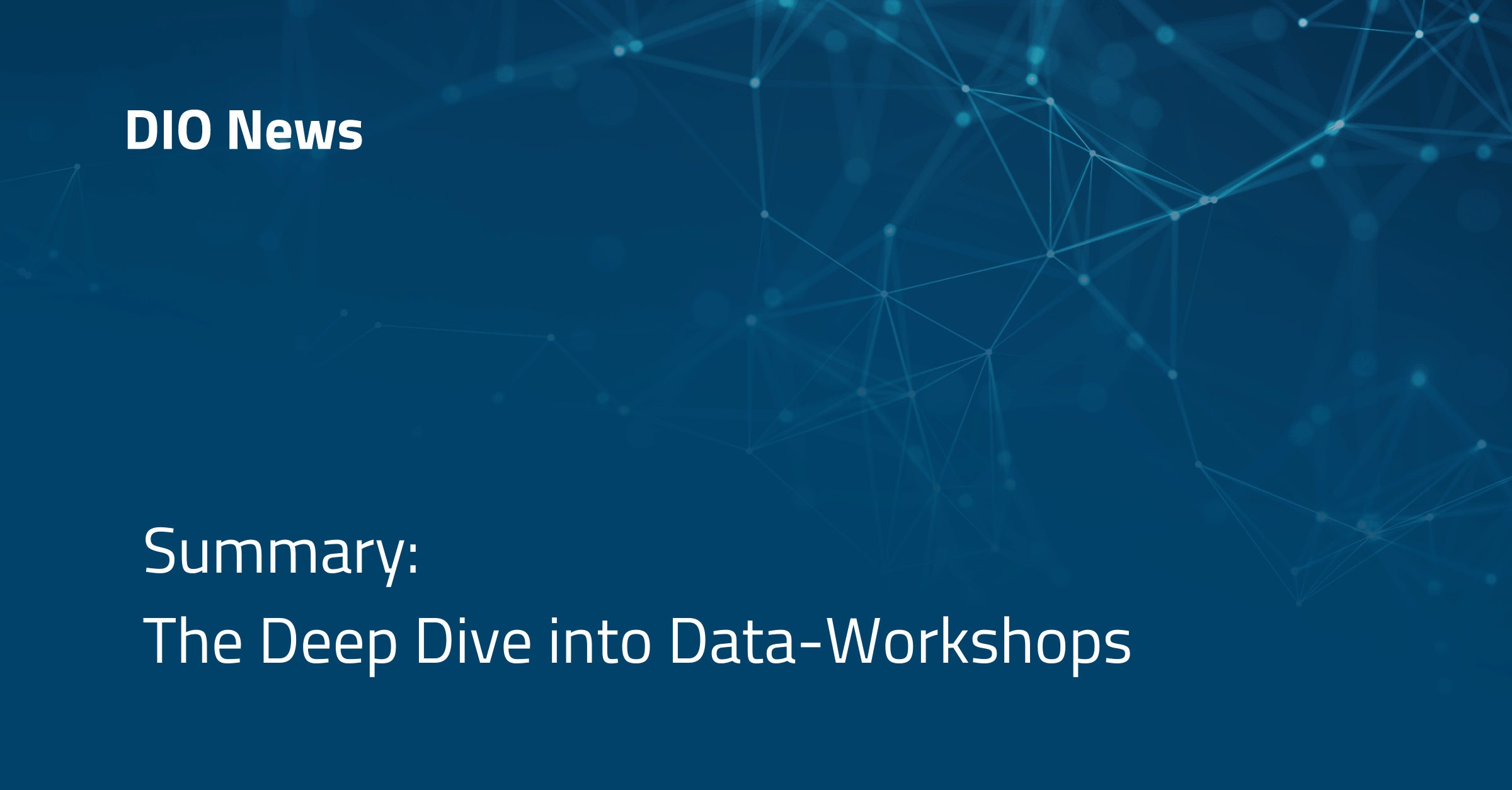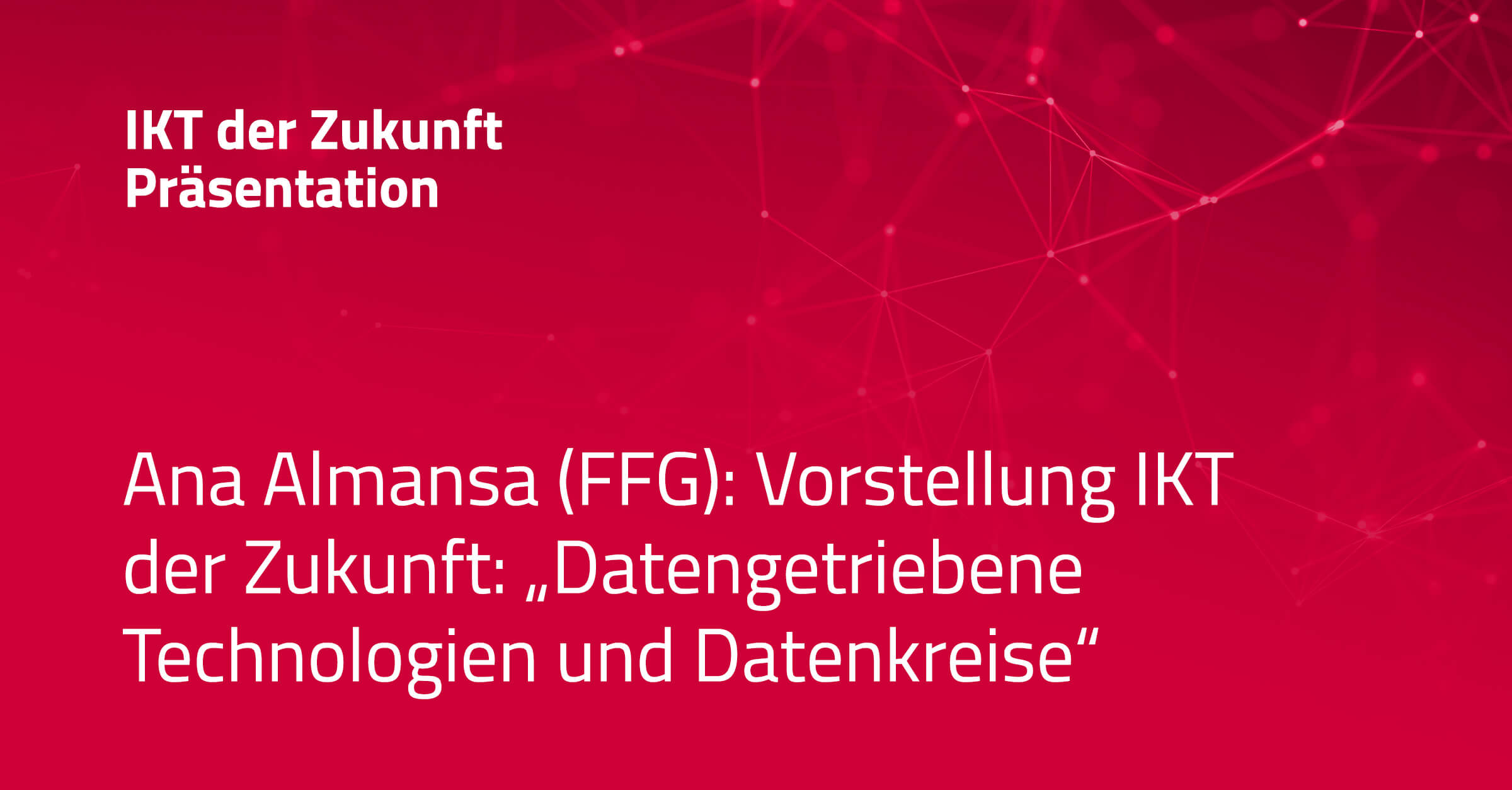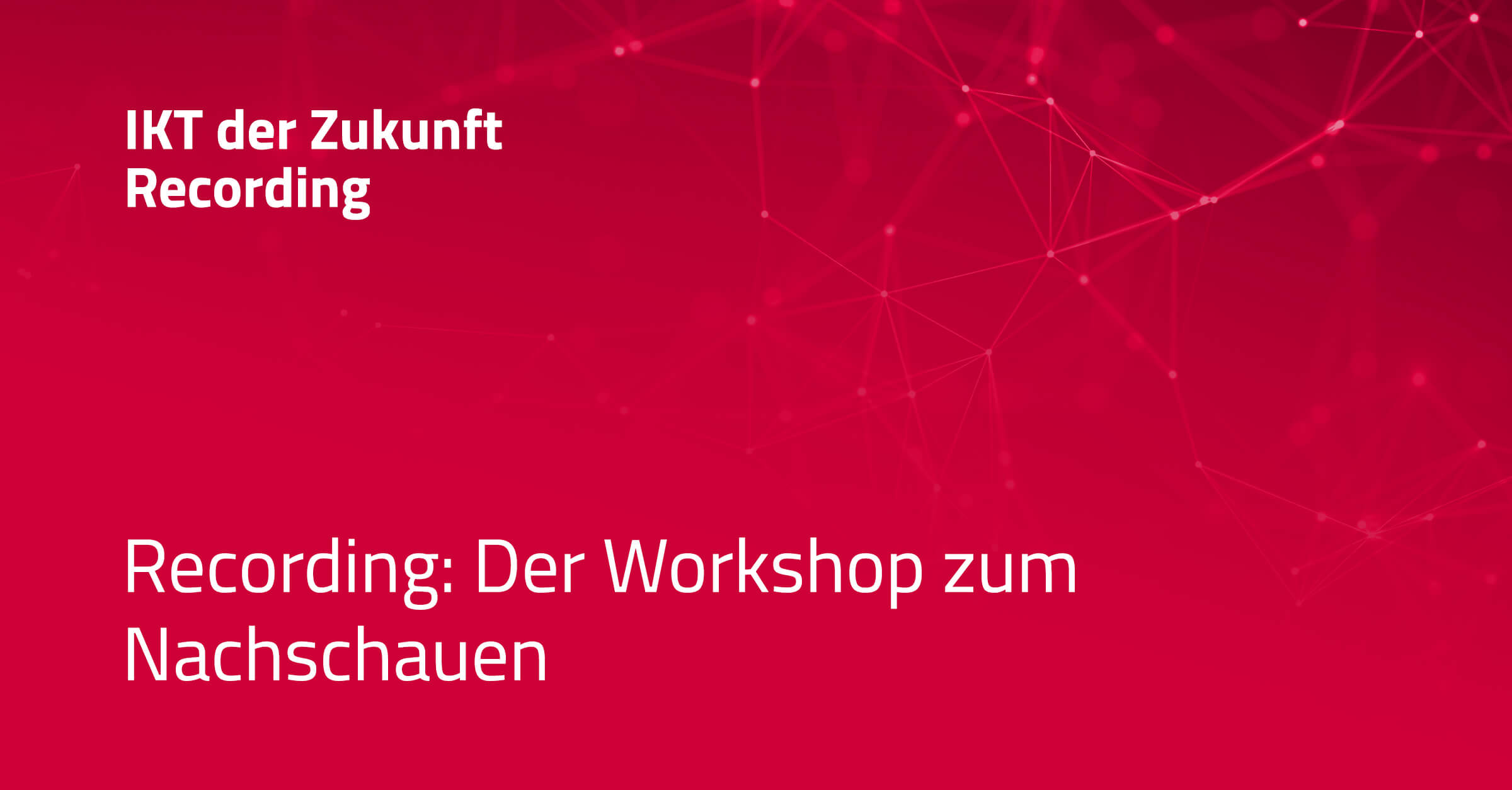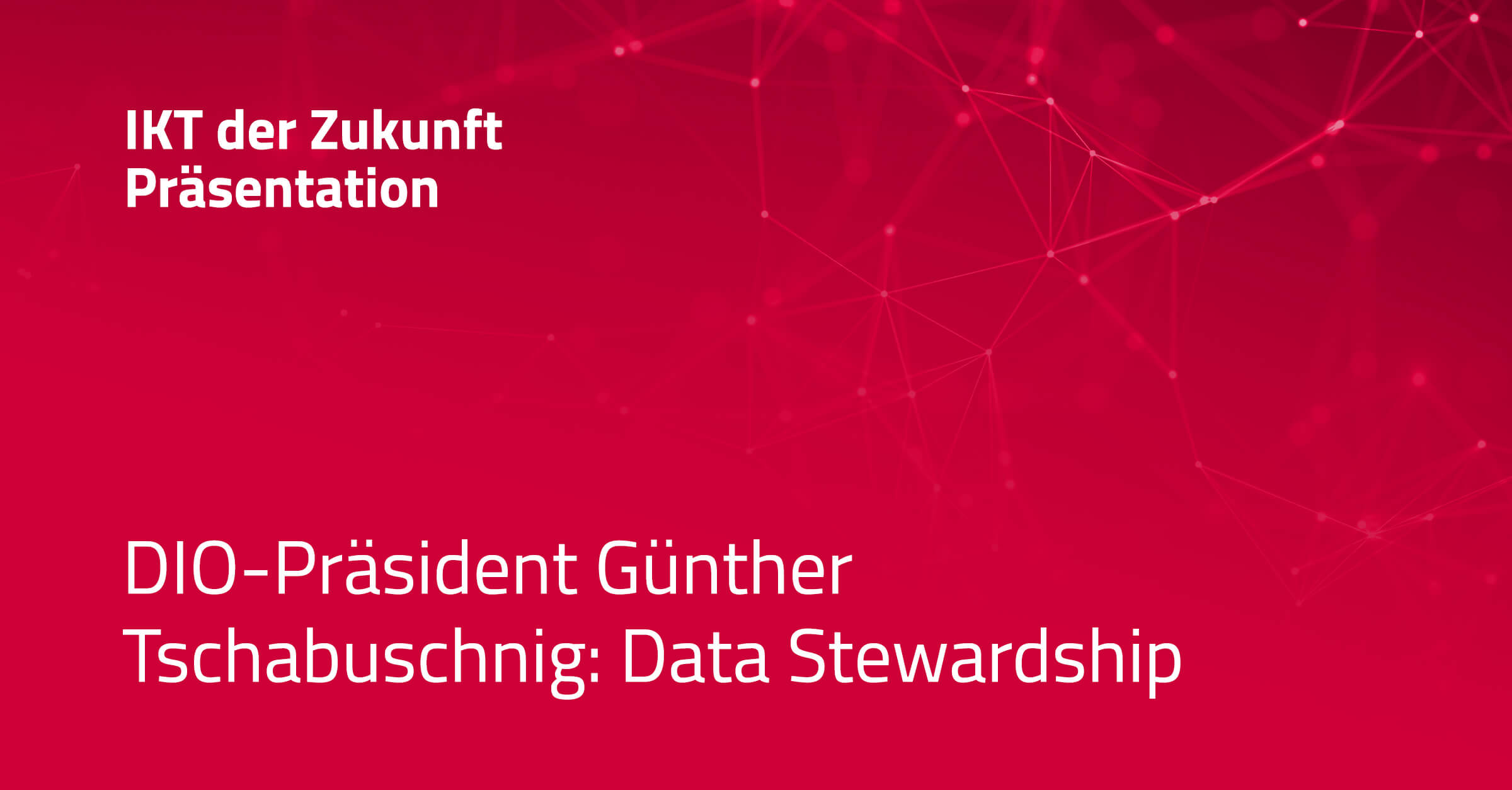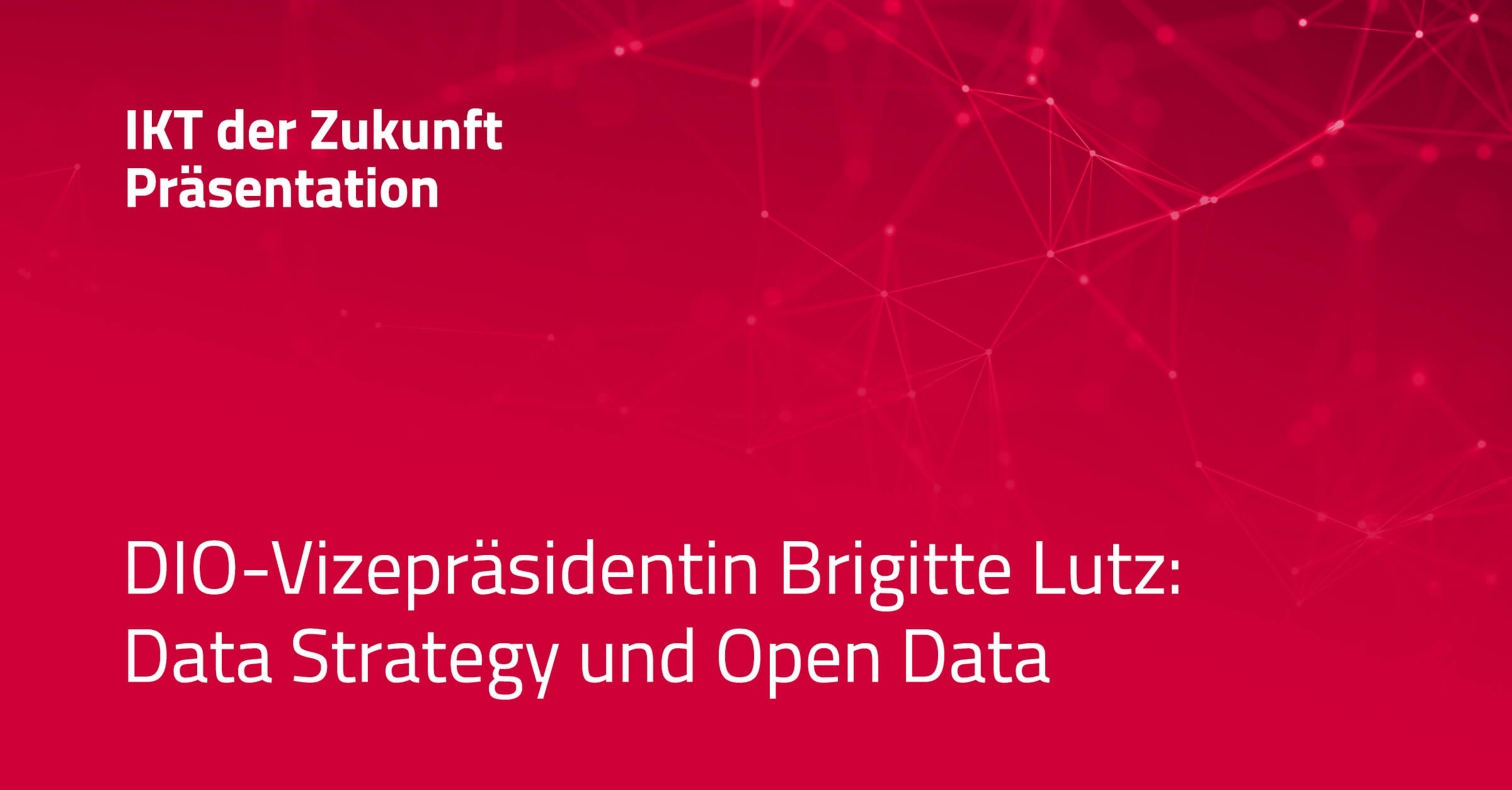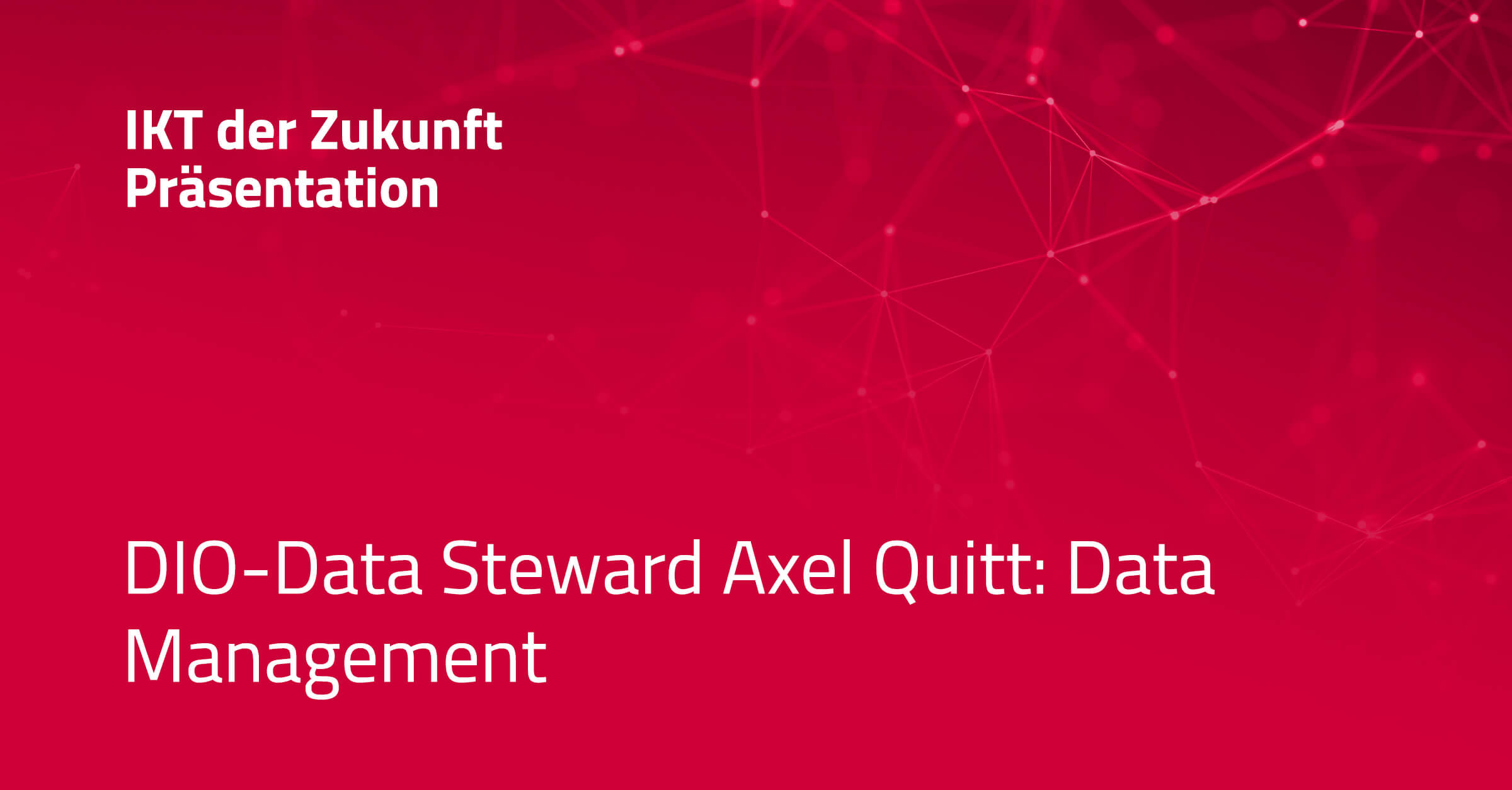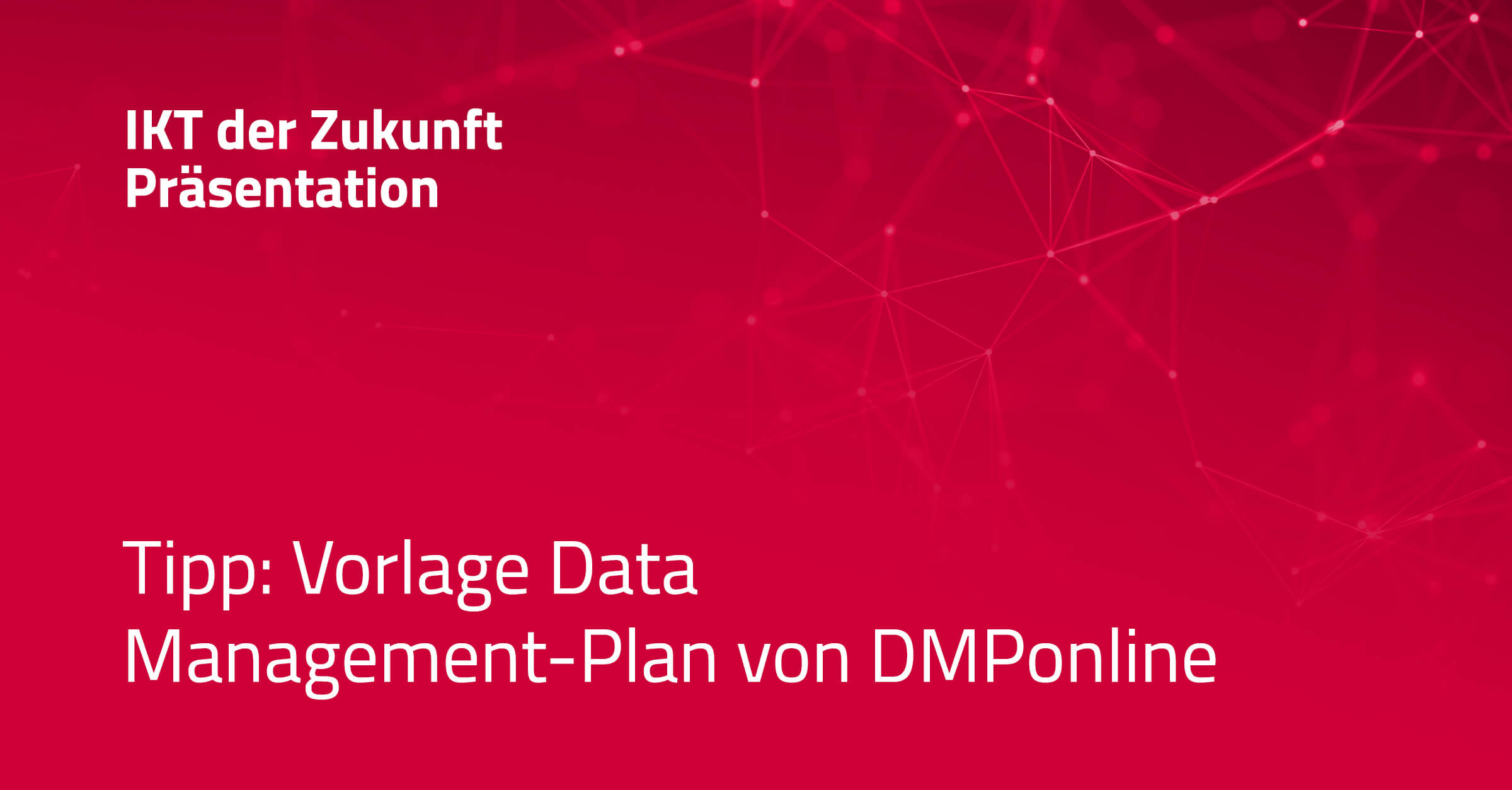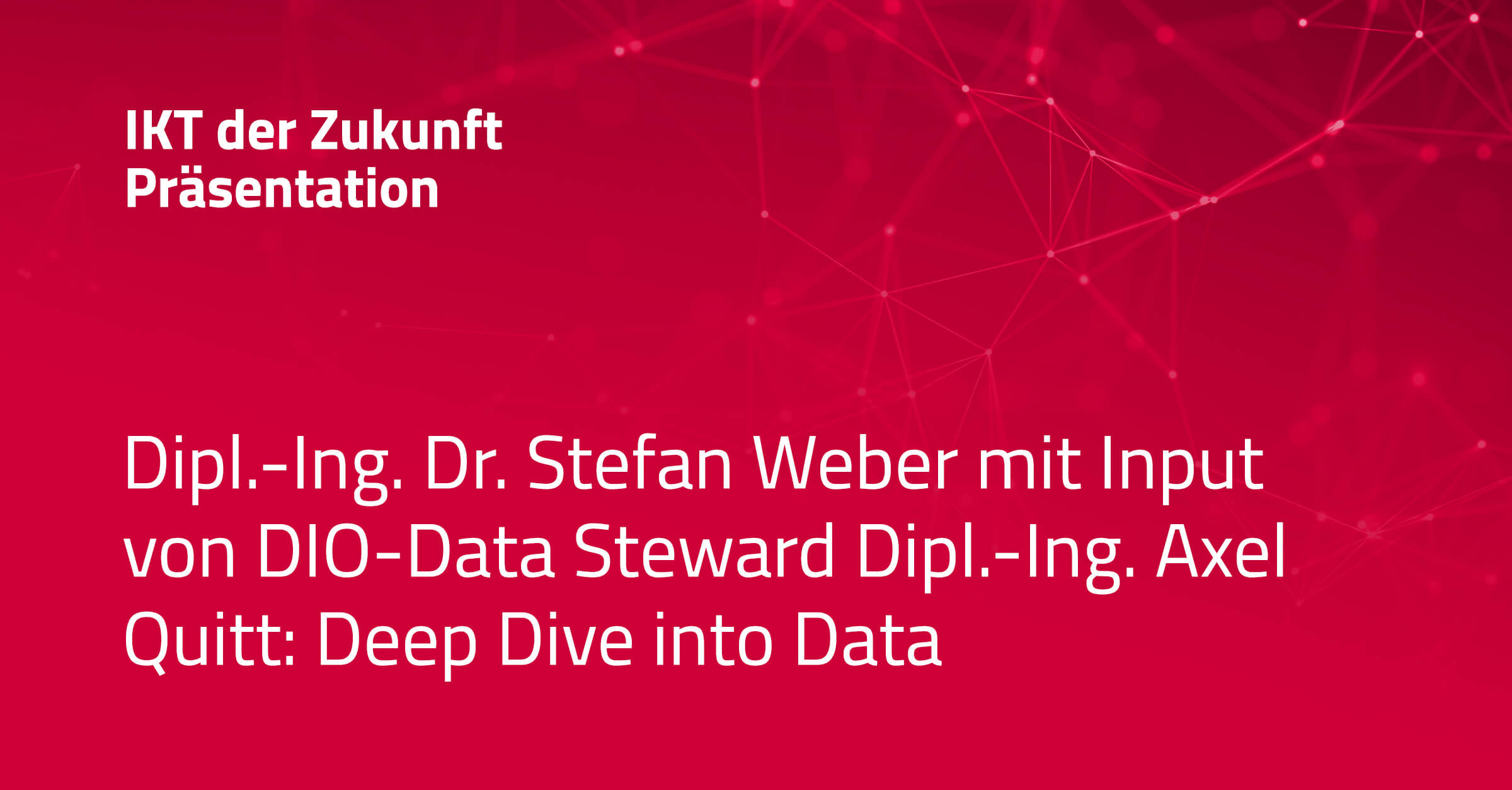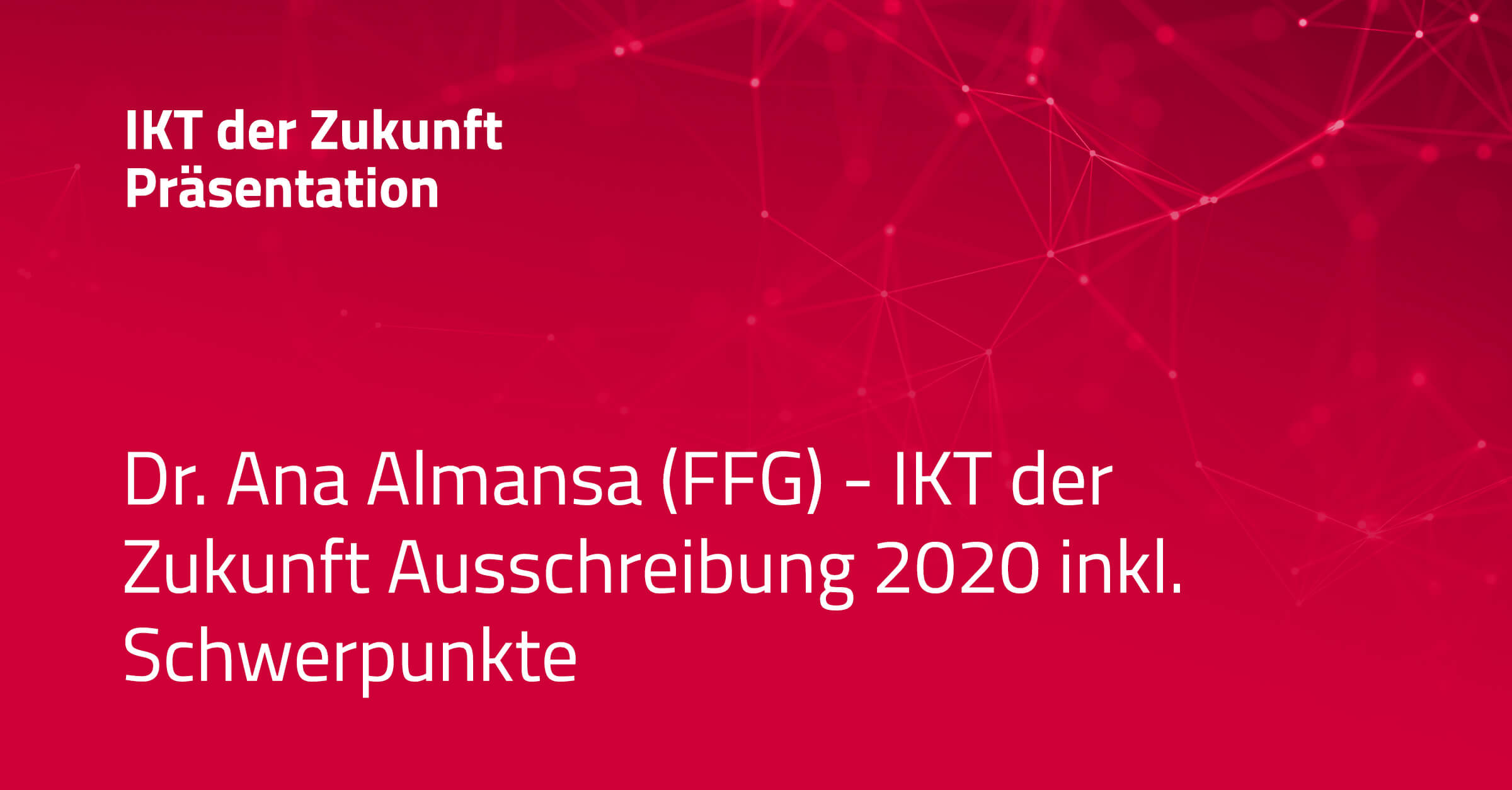ICT for the future
Tender 2020 – Our know-how for your success
The national funding programme ICT for the Future 2020 of the BMK and the FFG is looking for sustainable and innovative projects in the areas: “Data Driven Technologies”, “Interdisciplinary ICT for Resilience and Distancing” and “Data Circles”. A Data Management Plan is mandatory for all focus areas in the submission.
The Data Intelligence Offensive (DIO for short) provides its expertise in this regard on behalf of the BMK and the FFG. The aim is to establish the expertise of the DIO Data Stewards Axel Quitt among the experts of the submitting consortia or consortia accepted for the ICT for the Future Call 2020. This is done by means of:
Data management workshops in the submission phase for all (potential) applicants
Iterative data coaching in the area of data management and quality assurance for all funded consortia.
Data Consulting: 1 day per funded consortium
.
In addition to professional support in the development of their individual data management plan, experts receive advice on the opportunities and risks associated with the topic of data as well as an assessment of the corresponding level of knowledge in the respective organisation. The aim is to ensure that data is created, managed and used correctly, consistently and universally in the projects.
The DIO collects all documents, questions and of course the corresponding answers from the workshops and coaching and makes them available to you here. The post will be updated continuously.
FAQs on the Data Management Plan under the ICT for the Future Call 2020
Below you will find an overview of the most important questions from the workshops already held. The article will be continuously updated with FAQs from the upcoming workshops and the iterative Data Coaching and individual Data Consulting.
Axel Quitt: The tool DMPonline offers a good Data Management Plan structure incl. completion help. Various questions and guidelines support the creation of DMPs. But the content on DMPonline is exclusively in English.
Axel Quitt: There is no sharing of data. It is a cloud service. In case of scepticism with regard to clouds, relevant, critical points can be subsequently added to the generated document.
Axel Quitt: A directory of many published DMPs is available. However, there is no evaluation of their quality or completeness.
Brigitte Lutz: The City of Vienna has structured the data map according to data domains, where responsibilities are assigned, among other things. The data map is available to everyone on the intranet of the City of Vienna. A map can also be kept in Excel, for example, but there are also various tools for this purpose.
Axel Quitt: A data management plan should be to the point and at the same time think through and look after all levels. The shorter and more precise the formulation, the better.
Ana Almansa/FFG: The Data Management Plan as an annex can be uploaded separately. The indication of the page limit for the submission does not count here.
Axel Quitt: The use case is the relevant thing and must be placed in the centre. If there are several use cases, it is important to find out whether they can be organised hierarchically. They should have a common structure. The risk lies in abstraction. If possible, connections should be made.
The recommendations regarding use cases refer to the design of the data management plan.
Ana Almansa: There are no formal specifications or requirements regarding the structure or content of the Data Management Plan in the application.







